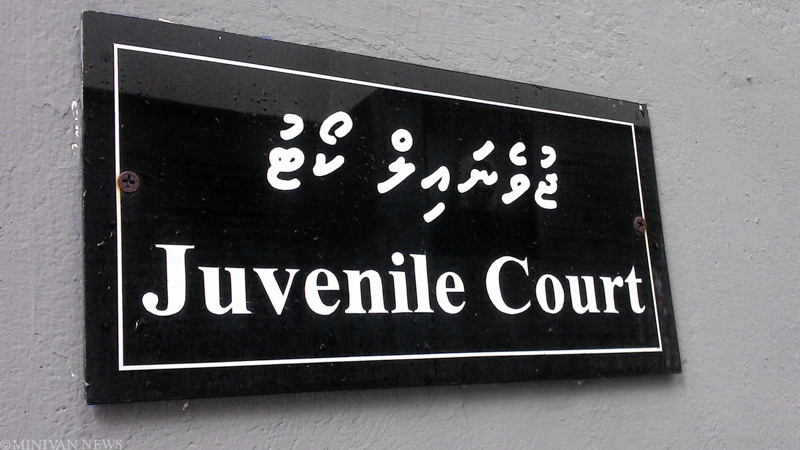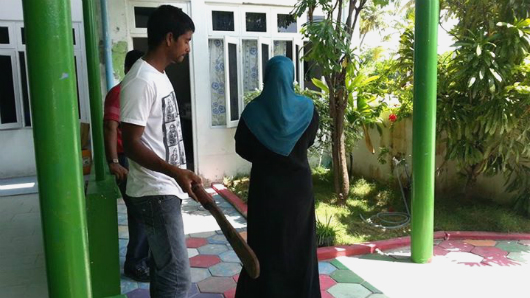The Maldives has “fully implemented” only three of the UN Human Rights Council’s 145 recommendations since its Universal Periodic Review (UPR) in March 2011.
A mid-term assessment of the Maldives’ commitment to human rights instruments, such as the International Covenant on Civil and Political Rights (ICCPR), stated that 12 recommendations had been “partially implemented”, 33 “not implemented” – or rejected outright – while 96 recommendations received “no response”.
Recommendations fully implemented included provisions relating to accepting the Rome Statute of the International Criminal Court (ICC), and the withdrawal of certain reservations to the Convention to Eliminate All Forms of Discrimination Against Women (CEDAW).
The UPR report sought comment from assorted NGOs, the Maldivian state and the Human Rights Commission of the Maldives (HRCM) in compiling the progress so far.
It noted that while the Maldivian government had made a formal commitment to provide a mid-term report, “it did not respond to our enquiry.”
“[HRCM] did not respond to our enquiry either.”
In the absence of input from the government or the country’s national human rights body, the majority of responses and comments on the recommendations were provided by three NGOS: Earthjustice & Human Rights Advocates (EJ+HRA), Friends of Maldives (FOM), and the Global Initiative to End All Corporal Punishment of Children (GIEACPC).
Treatment of minorities
In response to a recommendation from Norway that the government try to promote tolerance towards migrants in the Maldives, FOM stated it was unaware of any efforts to prevent stigmatisation.
“The stigmatisation has risen to concerning levels, especially towards Bangladeshi, Indian and Srilankan labourers,” FOM stated.
FOM noted that a bill on the Prohibition of Human Trafficking and People Smuggling had been submitted to parliament in December 2012, but said this had not yet been tabled for discussion and had not been subject to consultation with either the public or the NGO sector.
Regarding a recommendation for laws concerning the treatment and human rights of the physically and mentally disabled, “Legislation protecting persons with physical and mental disabilities seem to be of little or no interest within lawmakers,” observed FOM. “There is very little awareness on the importance of this matter. This is particularly concerning in the areas of law enforcement. For example, there are no protocols within the police service when dealing with persons with physical or mental disabilities.”
Treatment of women and children
In response to a recommendation that the Maldives abolish corporal punishment and the practice of public flogging, particularly of women and children, GIEACPC noted that the draft penal code included a legal defence for the use of corporal punishment in the home “under the concept of ‘justifiable force’ on a child for the ‘prevention or punishment of his misconduct’, providing this does not result in ‘death, serious bodily
injury, extreme or unnecessary pain or distress’.”
“The draft was recently amended to provide for Sharia punishments, including amputation, though it is unclear as yet if this would be imposed on child offenders,” GIEACPC noted.
FOM noted that despite the government’s ratification of the CEDAW and withdrawal of reservations to certain clauses, “women in the Maldives still face corporal punishment, notably with the recent case of a 15 year-old girl condemned to flogging despite being the victim of sexual abuse.”
FOM observed that there was a “clear rejection by the judiciary to reform, and this has been a major challenge that the Parliament, Executive as well as the civil society have been facing for the past years.”
Bringing domestic laws concerning marriage, divorce, inheritance, equal rights, and sexual and domestic violence and abuse in line with CEDAW was “particularly difficult” due to the country’s extremely narrow interpretation of Sharia and its strict application, stated FOM.
Issues relating to the rights of women remained “still highly controversial between the government and NGOs”, FOM observed, noting that this was possibly due to the government’s alliance with the Adhaalath Party, “a political movement that is seen to have more fundamental views and narrow interpretations of the Islamic Sharia, which has negative effects in terms of rights of women and girls.”
FOM also highlighted a growing trend of “families withdrawing girls from school in the name of religion.”
“These girls are then coerced into marriage in ages as early as nine to twelve years. There have been no visible efforts to control this or protect the right to education of these children. Although regulations prescribe that the age for marriage is 18, religious fundamentalists take refuge in Islamic Sharia over these matters and withhold that the consent of these girls are in the hands of their fathers or guardians. No efforts to prevent or react to these incidents have been seen in the Maldives,” FOM noted.
Justice system
Despite “elevated public discontent” over the state of the judiciary, formal dialogue as to its reform had been limited, FOM noted.
Regarding a recommendation by Malaysia that the Maldives accept offers of human rights training for judges and judicial staff, FOM responded that it was “aware that several international organisations as well as some local NGOs offered funds and programs in order to enhance the knowledge of human rights for judges, and that such funds exist presently, namely with the UNDP. However the judiciary have on several occasions ignored or avoided such offers for enhancement of knowledge.”
While a voluntary code of conduct for judges had been developed by the Judicial Service Commission, “the implementation of this code is not monitored. In addition
the general public view is that the code needs several amendments.”
Meanwhile, a report containing recommendations by the UN Special Rapporteur for the Independence of Judges and Lawyers had met with no response from the government, and public dismissal by several members of parliament.
Human rights
FOM observed a “serious deterioration in [the Maldives] process of promoting and protection of human rights”, with “continued confrontations between the law enforcement and protesters calling for fundamental rights and freedoms have resulted in excessive police brutality, obstruction of the right to assembly through the amendment of the existing Regulations on Assembly, several physical attacks and threats on journalists and many more such incidents which have been ignored by the relevant authorities.”
“Members of the police force who are seen on video clips to have brutalised protesters have since been given promotions. A single case of police brutality that the Police Integrity Commission investigated and which the Prosecutor General charged for, was rejected by the Criminal Court,” FOM noted.
Responding to a recommendation by France that the Maldives ensure the safety of journalists, FOM noted that “the situation of the journalists are such that they are targeted and harassed for what they report on. Some received physical threats and it is believed that politically motivated attacks on journalists have left them fighting for their lives.”
UNHRC Panel report
A delegation from the Maldives defended the Maldives’ human rights record before the UNHRC in July 2012.
It was headed by Home Minister Dr Mohamed Jameel, former Justice Minister during the 30 year rule of President Maumoon Abdul Gayoom and co-author of a pamphlet entitled ‘President Nasheed’s devious plot to destroy the Islamic faith of Maldivians’, published in January 2012.
Dr Jameel was accompanied by State Minister for Foreign Affairs, Dunya Maumoon – Gayoom’s daughter – as well as the Maldives’ Permanent Representative in Geneva, Iruthisham Adam.
Asked by a panellist whether the country was seeking to reconcile human rights with Islam, Dr Jameel responded that human rights in the Maldives streamlined with Islam “with very few minor exceptions.”
“The general acceptance of Muslim jurists is that Islamic human rights were there long before we subscribed to universal human rights,” he said.
“We declare that there are no apparent contradictions between human rights and what is there in the Maldives constitution.”
On the subject of justice, Dr Jameel emphasised that any citizen could bring their grievances before the judiciary, over which the executive had “little or no influence.”
Following the delegation’s defence, the UNHRC recommended “radical changes” to Maldivian law to ensure compliance with the International Covenant on Civil and Political Rights (ICCPR).
These changes include the abolition of the death penalty, compensation for “systematic and systemic torture,” withdrawal of reservations to the ICCPR’s Article 18 regarding freedom of religion and belief, and reforming the country’s judiciary.
A panel member during the UNHRC session itself also noted the “troubling role of the judiciary at the centre” of the controversial transfer of power on February 7.
“The judiciary – which is admittedly in serious need of training and qualifications – is yet seemingly playing a role leading to the falling of governments,” the panel member observed.
Read the UPR mid-term assessment
Correction: An earlier version of this article incorrectly stated that the UPR was conducted in 2012. The Maldives UPR held between 4 November 2010 and 27 March 2011. On 4 November 2010, the Maldives performance was reviewed, queried, debated and responded to in a 3 hour discussion in which nearly 150 recommendations were made. After this discussion, a report was compiled and in March 2011, the Maldives gave a commitment to implement 145 of those recommendations.
Likes (0)Dislikes
(0)Dislikes (0)
(0) 

